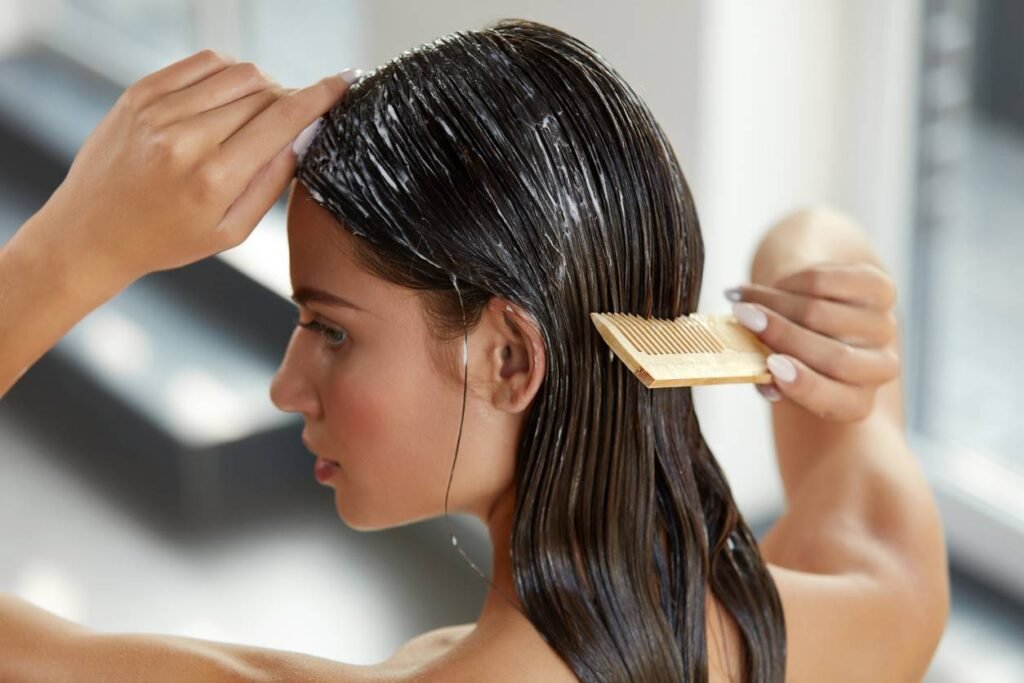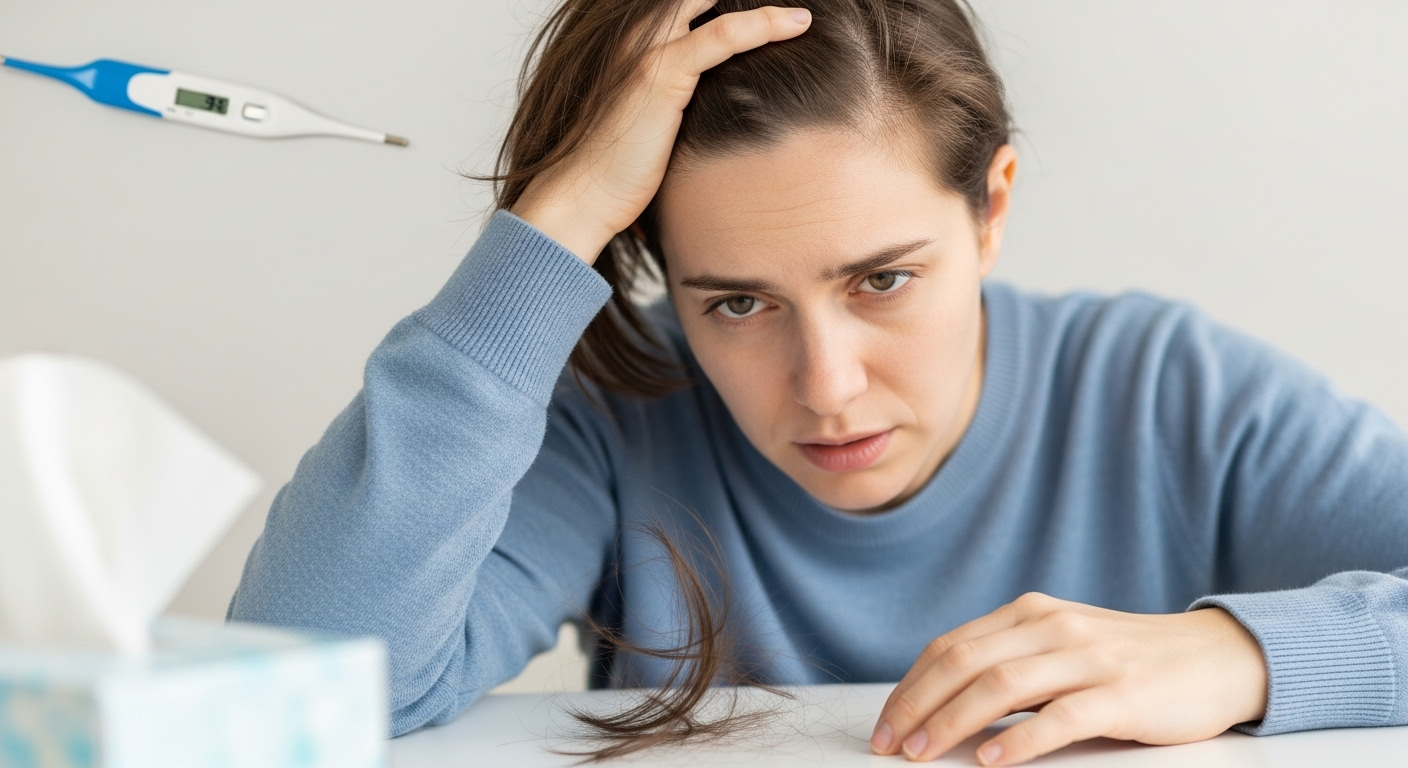Summary Swimming does not directly cause permanent hair loss, but repeated exposure to chlorine, minerals, and saltwater can weaken and break hair strands, making thinning more noticeable.Does swimming cause hair loss? Learn the truth about chlorine, hair damage, and prevention tips for healthy swimmer’s hair. With proper protection like pre-swim care, caps, and post-swim rinsing, …
Summary
Swimming does not directly cause permanent hair loss, but repeated exposure to chlorine, minerals, and saltwater can weaken and break hair strands, making thinning more noticeable.Does swimming cause hair loss? Learn the truth about chlorine, hair damage, and prevention tips for healthy swimmer’s hair. With proper protection like pre-swim care, caps, and post-swim rinsing, you can enjoy swimming safely without worrying about long-term hair shedding.

Table of Contents
Introduction
Are you worried that your regular swimming routine is making your hair fall out? Many people ask, does swimming cause hair loss, especially if they notice brittle strands after pool sessions. The truth is, swimming doesn’t directly cause permanent hair loss, but chlorine, salt, and pool chemicals can damage your hair shaft, making it look thinner. In this guide, you’ll learn the science behind swimmer’s hair, proven protection tips, expert advice, and when to seek medical help.
Understanding the Basics: Hair Loss vs. Hair Damage
Hair Shedding vs. Breakage — What’s the Difference
Hair shedding comes from the scalp and follicles, while breakage happens mid-shaft due to dryness or damage. Swimming usually causes breakage, not follicle-driven hair loss.
How Chlorine and Minerals Affect the Hair Shaft
Chlorine strips natural oils, while copper and hard water minerals cling to hair, leaving it weak, brittle, and discolored. Over time, this damage mimics thinning.
Role of Scalp Health and Hormones
True hair loss often involves genetics, hormones, or conditions like alopecia. Swimming may worsen visible thinning, but it’s not the root cause.
What the Research & Experts Say on Swimming and Hair Loss
Human and Clinical Studies
Studies comparing swimmers to non-swimmers show more breakage and dryness, but no consistent evidence of permanent follicle loss.
Exposure Thresholds
Casual swimming once or twice a week poses little risk. Daily pool exposure without protective care, however, increases damage significantly.
Why Some Swimmers Report Hair Loss — Risk Factors & Amplifiers
- Chlorine concentration: poorly maintained pools cause more damage.
- Hard water minerals: copper and manganese worsen breakage.
- Hair type: curly, fine, or chemically treated hair is more vulnerable.
- Mechanical stress: friction from caps, goggles, and tight hairstyles.
- Pre-existing conditions: genetic or hormonal hair loss may appear worse with swimming.
Symptoms to Watch For: Is Swimming Causing Your Thinning?
- Dry, brittle strands
- Green or brassy discoloration
- Increased split ends
- Breakage near hairline or nape
- Tangling and rough texture
If you notice persistent shedding from the scalp, consult a dermatologist—it may be hormonal or medical rather than swimming-related.
How to Swim Safely — Prevention & Protective Strategies

Pre-Swim Habits
- Rinse with clean water to saturate hair before entering the pool
- Apply coconut oil or leave-in conditioner to form a barrier
- Use a snug, silicone swim cap
During Swimming
- Keep hair braided or tucked under the cap
- Limit underwater time to reduce chemical absorption
Post-Swim Care
- Rinse immediately with fresh water
- Use a gentle clarifying shampoo once or twice weekly
- Deep condition with protein or hydrating masks
- Apply leave-in treatments rich in antioxidants
Pro Tip: Use chelating shampoos with sodium thiosulfate once a week to remove chlorine and copper buildup.
Repairing Damage & Promoting Hair Regrowth
- Diet & hydration: Protein, omega-3s, and vitamins support hair recovery.
- At-home care: Regular trims, scalp massages, and hydration treatments.
- Medical options: Low-level laser therapy, PRP injections, or minoxidil if shedding is unrelated to swimming.
- Recovery timeline: Most swimmers notice improvement within 4–8 weeks after consistent care.
FAQs
Does swimming cause permanent hair loss?
No. Chlorine damages hair shafts, not follicles. Damage is reversible with care.
Does saltwater swimming damage hair the same way?
Yes, salt dehydrates hair, but it usually causes less buildup than chlorine pools.
Can my hair grow back after chlorine damage?
Yes, with trimming and conditioning, new growth is unaffected.
How many swims per week are safe?
2–3 times weekly with protective measures is safe for most hair types.
Why does blonde hair turn green?
Copper and chlorine compounds bind to the hair shaft, leaving a greenish tint.
Conclusion
Swimming should not stop you from enjoying fitness and fun. With the right prevention and care strategies, you can keep your hair healthy and strong. Dermatologists recommend balancing your swim schedule with protective habits, so hair breakage never turns into a long-term worry.
Ready To Take Your Next Step
Ready to protect your hair and regain confidence? Book a consultation with Dr. Rana Irfan in Islamabad today for expert hair loss evaluation and swimmer-safe scalp care solutions.






